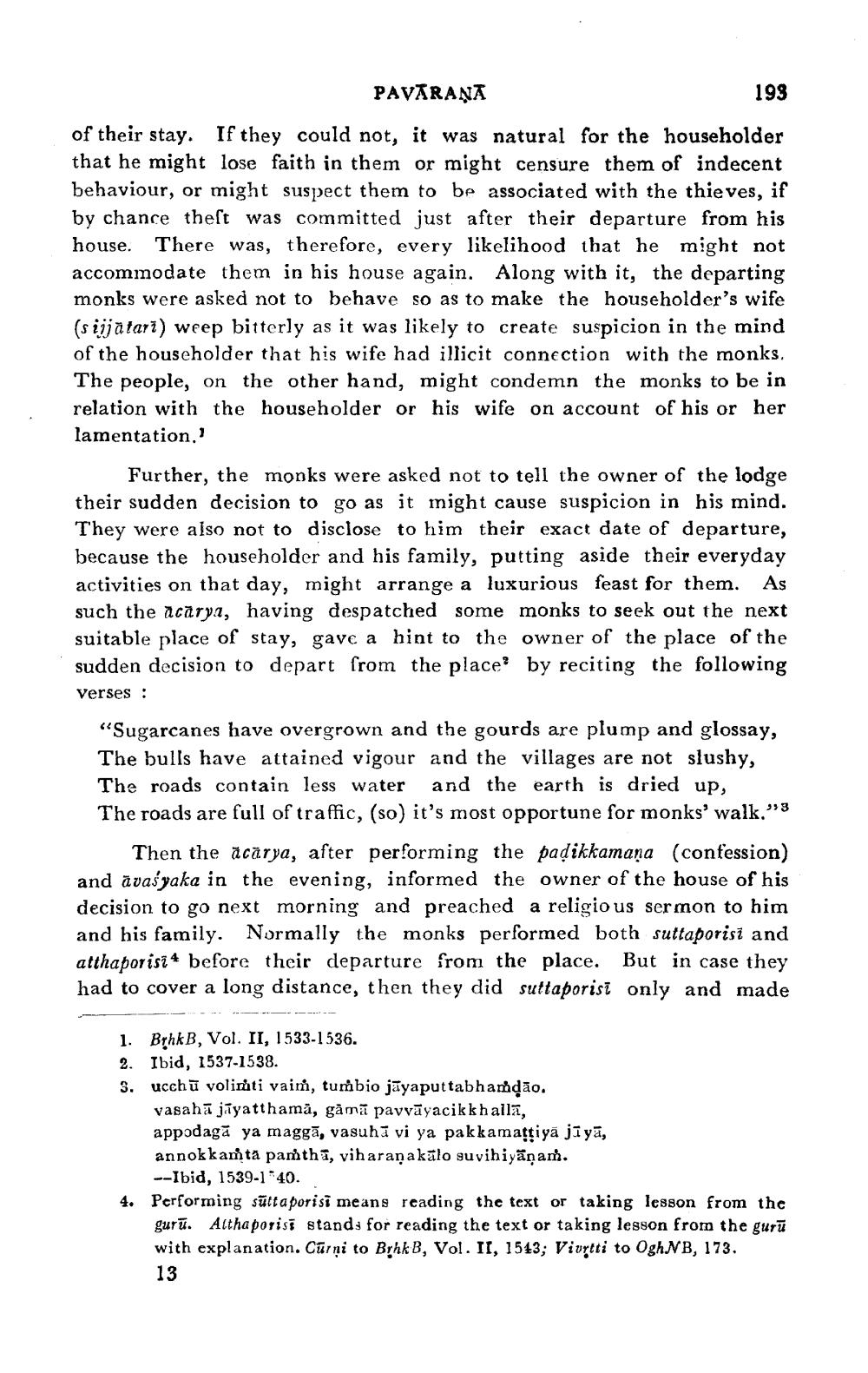________________
PAVĀRANA
193
of their stay. If they could not, it was natural for the householder that he might lose faith in them or might censure them of indecent behaviour, or might suspect them to be associated with the thieves, if by chance thest was committed just after their departure from his house. There was, therefore, every likelihood that he might not accommodate them in his house again. Along with it, the departing monks were asked not to behave so as to make the householder's wife (sijjatari) weep bitterly as it was likely to create suspicion in the mind of the householder that his wife had illicit connection with the monks. The people, on the other hand, might condemn the monks to be in relation with the householder or his wife on account of his or her lamentation.'
Further, the monks were asked not to tell the owner of the lodge their sudden decision to go as it might cause suspicion in his mind. They were also not to disclose to him their exact date of departure, because the householder and his family, putting aside their everyday activities on that day, might arrange a luxurious feast for them. As such the acārya, having despatched some monks to seek out the next suitable place of stay, gave a hint to the owner of the place of the sudden decision to depart from the place? by reciting the following verses :
“Sugarcanes have overgrown and the gourds are plump and glossay, The bulls have attained vigour and the villages are not slushy, The roads contain less water and the earth is dried up, The roads are full of traffic, (so) it's most opportune for monks' walk."
Then the acarya, after performing the padikkamana (confession) and avasyaka in the evening, informed the owner of the house of his decision to go next morning and preached a religious sermon to him and his family. Normally the monks performed both suttaporisi and atthaporisi 4 before their departure from the place. But in case they had to cover a long distance, then they did suttaporisi only and made
1. BrhkB, Vol. II, 1533-1536. 2. Ibid, 1537-1538.
ucchū volirti vaim, tumbio jāyaputtabhamdão. vasahā jāyatthamā, gåmā pavvāyacikk halla, appodagā ya maggā, vasuha vi ya pakkamattiya jīyā, annokkanta pamtha, viharaṇakālo suvihiyāṇam. --Ibid, 1539-1940. Performing sütt a porisi means reading the text or taking lesson from the guru. Altha porisă stands for reading the text or taking lesson from the guru with explanation. Cūrni to ByhkB, Vol. II, 1543; Vivrtti to OghNB, 173. 13




